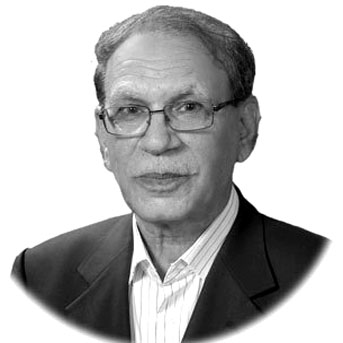Mohammad Jamil
DURING hearing of federal government’s appeal
against the November 2018 verdict by the
Peshawar High Court (PHC) that had set aside all convictions by military courts, Supreme Court directed the Ministry of Defence to give details of sentences. The directive was issued by the three-judge bench, which has taken over 70 appeals moved by the Defence Ministry against the PHC judgments that had ruled that convictions by military courts were wrongful and based on ill-will. The apex court had stayed the PHC order with the directive to the jail superintendents concerned to halt the release of accused who were awarded different sentences including death. The lawyers of the convicts contended that barring the confessional statements no other evidence was presented during their trials, and argued that an accused cannot be awarded capital punishment merely on the basis of a confessional statement.
On the direction of the Supreme Court, Ministry of Defence would submit a statement containing details about the sentences. The apex court would indeed examine the details of FIRs, and whether confessional statements were voluntary, or under duress as implied by the lawyers. In November 2018, the Supreme Court had issued a stay order against the Peshawar High Court’s ruling on the 74 terrorists convicted by the military courts, and jail superintendents had been asked to stop the release of the convicts. Earlier, the military courts had requested that their original sentences be restored, and on 02 November, the government had filed an appeal in the Supreme Court against the Peshawar High Court’s decision to set aside the sentences of 74 convicts. A two-member Bench, headed by Justice Azmat Saeed, had heard the case. Fifty convicts were awarded death sentences while the remaining 24 were to serve prison terms.
The convicts’ relatives had challenged their convictions under Article 199 of the Constitution which relates to the jurisdiction of high courts. Admitting the federal government’s appeal, the two-member apex court bench headed by Justice Sheikh Azmat Saeed stopped the authorities from implementing the PHC order. It has to be mentioned that military courts were established under due process of law. When military courts had expired on 07 January 2017, after the expiration of a sunset clause included in the legal provisions under which the tribunals were established in 2015. On 31 March 2017 then President Mamnoon Hussain gave his formal assent to the Pakistan Army Act 2017 and the 23rd Constitutional Amendment Bill – the two pieces of legislation aimed at granting legal cover to military courts – after they were cleared by Parliament.
The courts were subsequently revived for two years and given legal cover from the day of their expiry. At that time COAS General Qamar Javed Bajwa had said that war on terrorism continued, and hoped that the government would extend the period of military courts for two years after it expires on 31 March 2019. After APS attack in December 2014 every Pakistani wanted a strong action against militants. National Action Plan was formulated and military courts were established. President Mamnoon Hussain in January 2015 had signed the 21st Constitutional Amendment Bill 2015 into law, making it a part of the Constitution. The bill had been passed in the National Assembly and Senate, and was passed unopposed in both the Upper House and Lower House. The bill was presented in the National Assembly to seek changes in the Constitution and Military Act to speed up trial of terrorists.
The nation had demanded severe punishment to the terrorists when Tehreek-i-Taliban Pakistan gunmen had killed nearly 150 school children and staff members in an attack on 16 December 2014. The Constitutional Amendment Bill was passed with 247 votes – 14 more than the required two-third majority in the National Assembly and 78 votes out of 104 were passed in the Senate. The amendment in the bill was aimed to set up special courts for militant’s trials and it was not opposed by any member present inside the house. All Parties Conference (APC) had also given their consent for the amendments to the Pakistan Army Act to extend its jurisdiction for speedy trial of cases under specified acts and provided the constitutional protection to this act for two years from the date of enactment. Brainstorming sessions were held under the leadership of Speaker National Assembly.
The then Speaker Sardar Ayaz Sadiq had finalized the draft legislation envisaging revival of military courts. But some political parties especially Pakistan People’s Party had raised questions on these courts despite government’s several concessions including reducing the tenure of the courts from three to two years. Anyhow, the people of Pakistan expected speedy trials in military courts and effective justice so that they are relieved the stress that justice is neither delayed nor denied. Since PTI government and military are on the same page, it was not difficult to extend the period of military courts for another period of two years. Meanwhile, a Sessions Court in Khyber Pakhtunkhwa’s Tank district had granted bail to the Pashtun Tahaffuz Movement (PTM) chief, Manzoor Pashteen, in two cases of sedition while he was also granted bail in a similar case by a Dera Ismail Khan court.
The Additional District and Sessions Judge, Tank, had granted the PTM leader bail against two personal sureties and a surety bond worth Rs 100,000. It is unfortunate that some liberal democrats and human rights activists demand the release of the leaders who challenge the writ of the state and are booked on sedition chargers for being involved in activities detrimental to national security. It is true that terrorists have the right to defend themselves, the prosecutors have to provide evidence in the court so that they do not go scot free for lack of evidence.
—The writer is a senior journalist based in Lahore.








